|
The ongoing parliamentary enquiry into the SABC has eluded to the suggestion that one of the causes of the public broadcaster’s poor performance was a board that did not possess the right mix of knowledge, skills and experience to be able to discharge its duties effectively. Parmi Natesan, Executive, Centre for Corporate Governance, Institute of Directors in Southern Africa (IoDSA), says that the investigation’s findings make a strong case for the benefits of professionalising directorship.
“The parliamentary enquiry into the SABC demonstrates that the quality of governance exercised by the board has a knock-on effect on a company’s operational effectiveness,” Natesan says. “It’s also clear that board members must have certain knowledge, skills and experience in order to fulfil their responsibilities. To give one example, recent media reports indicate that some of the board members did not properly understand the Broadcast Act, and thus were not in a position to ensure the legal mandate was fulfilled. “However, board members cannot claim ignorance as an excuse, and the onus is on them to be properly informed prior to making decisions.” This kind of situation can be avoided if board members are properly inducted onto the board, and proactively expand their knowledge of the company, the market/legislative regime in which it operates and developments in corporate governance. But they also need to have a good understanding of what their duties and responsibilities as directors are. Angela Cherrington, CEO of the IoDSA, says that because markets change so rapidly and are increasingly competitive, boards are under increasing pressure to maintain the right levels and types of skill, experience and diversity to keep the company on the right course. “Directors play a hugely important role, and their job is becoming much harder. The case for a new breed of professional directors is growing stronger by the day. Companies would be able to assess objectively what skills individuals have, and thus whether they would complement the existing board’s skills. As professionals, directors would also have to commit to a formal, ongoing programme of professional development,” she explains. “Professional directors would be bound by a code of conduct enforced by a professional body.” In response to this growing need in corporate South Africa, the IoDSA launched a professional designation, Chartered Director (SA), or CD(SA). According to Cherrington, this initiative recognises that directors require specialist skills, experience and integrity alongside their purely business skills. The CD(SA) designation also gives directors a way to demonstrate their mastery of the director competencies, and to enhance them through a formal continuous professional development programme. They would have to subscribe to a code of professional ethics. In addition, the IoDSA will soon be re-launching Certified Director, an interim designation on the pathway to CD(SA). This re-introduction aims to capture those individuals who do not yet have the board experience to enter the CD(SA) process, but who have the knowledge necessary to start their directorship journey. The IoDSA administers, and is the custodian of, the both designations. “We were delighted to see that PWC’s Non-executive directors: Practices and remuneration trends report for 2017 predicts that ‘non-executives will become specialised professionals’ in order to meet the challenge of increased business risk,” Cherrington concludes. “The CD(SA) designation provides a framework against which directors can be measured and grown, and it will increasingly become the gold standard for directors in both the public and private sectors.” ENDS MEDIA CONTACT: Cathlen Fourie, 082 222 9198, [email protected], www.atthatpoint.co.za For more information on the IoDSA please visit: Website: www.iodsa.co.za Twitter: @The_IoDSA LinkedIn: The Institute of Directors in Southern Africa
0 Comments
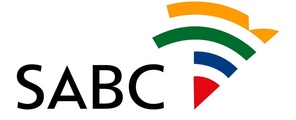 As a first step to restore confidence in the governance structures at the national broadcaster, the Parliamentary Portfolio Committee on Communications should follow best practice as regards to the due diligence process on director appointments. Acting with a high standard of care will ensure that fit and proper persons are appointed to oversee and direct the entity and avoid the kind of embarrassment caused by news of faked qualifications and other performance furores. “On the face of it, the recent decision to re-advertise the board posts should be applauded because it shows an awareness of how important it is to appoint competent board members who can make a real contribution to the collective knowledge, skill, experience and diversity of the current board,” says Parmi Natesan, Executive: Centre for Corporate Governance at the Institute of Directors in Southern Africa (IoDSA). The IoDSA’s comments follow on from recent press reports that the Portfolio Committee on Communications will be re-advertising the positions of three members of the SABC board, including the Chair. The Committee had previously said that it was dissatisfied with the quality of the applications it had received for the three posts. “Board composition has such a significant impact on board and ultimately company performance that it’s worth taking the time to get it right,” adds Natesan. Natesan adds that the IoDSA’s Director Competency Framework could also be used as a basis to help assess the candidates’ competency to serve. In addition, the IoDSA launched a professional designation for directors—the Chartered Director or CD(SA)—last year, in order to help individuals ensure they had the necessary skills for a board appointment, and to help selection committees identify the most competent candidates. While there are relatively few CD(SA)s at present, government should encourage present and future public sector board members to embark on accreditation. On a positive note, two large parastatals already have a CD(SA) each on their boards; and in addition, one public sector entity has shown an interest in putting their whole board through the IoDSA’s CD(SA) accreditation process. On a broader level, Natesan also recommends that government follow established governance best practice by avoiding excessive interference in board dynamics and operations. In particular, the practice of suddenly removing board members for political reasons has not only made boards dysfunctional, it has meant that fewer and fewer good candidates will come forward. The re-advertisement is proof of this, and the IoDSA believes that other parastatals are likely to face the same challenge. The Committee chair, Joyce Moloi-Moropa, alluded to this, reportedly saying, “We will again not get good candidates because people know that they will have no security of tenure if they can be removed at a whim by the board, with the backing of the minister.” Natesan comments that while it’s perfectly proper for the shareholder—government in this case—to appoint the board, it should then leave the oversight and direction of the organisation to the board, including the appointment of executives. Making the right appointments upfront after proper due diligence, and maintaining role clarity without undue influence and interference will go a long way to solve these public sector challenges. “One of the problems facing the SABC—and other parastatals—can be traced to the confusion caused by the shareholder appointing executives that the board seemingly does not support and cannot truly call to account. The ongoing furore around the SABC COO, Hlaudi Motsoeneng, is an example,” Natesan says. “In general, good governance practices have a beneficial effect on corporate performance. We have seen the results when they are not followed. The Portfolio Committee will only make progress towards putting the SABC back onto the right path if it implements a rigorous process to appoint the right directors—and then if all parties adhere to good governance principles.” ENDS MEDIA CONTACT: Cathlen Fourie, 012 664 2833, [email protected], www.atthatpoint.co.za For more information on the IoDSA please visit: Website: www.iodsa.co.za Twitter: @The_IoDSA LinkedIn: The Institute of Directors in Southern Africa group  Parmi Natesan Parmi Natesan The Institute of Directors in Southern Africa (IoDSA) is adding a governance view to the concern being expressed in recent new articles around proposed changes to the SABC’s Memorandum of Incorporation (MoI) by Minister Faith Muthambi. Parmi Natesan, Executive: Centre for Corporate Governance at the IoDSA, says that some of the reported changes do not align to governance best practice. One issue raised by Natesan is the fact that the changes to the MoI has the potential to blur the governance roles played by the shareholder (the state) and the SABC board. In the private sector it is very clear that the shareholders hold shares in a company and appoint a board to direct and oversee the company on their behalf. “The board could bear liability if its decisions are wrong, so it’s important that it has the power to make its own decisions,” Natesan explains. “Thus if shareholders interfere too much in the way that the company is run, then governance breaks down. This is unfortunately a common problem that exists in the public sector as boards become rubber stamps for the dominant shareholder—which results in poor board and ultimately poor company performance.” Another adverse result is that these boards find it increasingly difficult to attract directors with the right levels of knowledge and skills. Individuals with governance knowledge would be reluctant to serve on such boards because they realise they will incur great responsibility and liability, whilst their true power to make the right decisions are restricted. The MoI also permits the Minister to appoint the COO as acting CEO when the latter position is vacant, and also gives her the power to extend employment contracts for the CEO, CFO and COO. Natesan points out that there is a danger of sacrificing general principles in order to achieve short-term goals. There’s widespread agreement that boards have to be responsible for executive appointments because executives are responsible and accountable to the board. When executives are appointed by the shareholder, they tend to feel accountable to the Minister, as the representative of the shareholder, and not the board. Again, as the IoDSA’s studies show, this causes significant confusion around role clarity and reporting lines within the governance structure. A more complex, though related, issue is the power given to the Minister to recommend the removal of a board member. Shareholders have always had the power to remove directors but Natesan cautions that the dynamics are complicated when there is a single shareholder represented by a single individual. In the private sector, the fact that there are generally multiple shareholders ensures that alternative viewpoints compete, and the delicate balance between shareholders and board can be maintained. “The fact that public sector corporations have only one shareholder who is politically driven, makes it much harder to strike the right governance balance, and this in turn compromises the board’s ability to do its job,” says Natesan. “If the single shareholder refuses to follow governance best practices in pursuit of short-term, political ends, it will fatally damage the ability of an entity to function effectively. South Africa is a global leader in corporate governance—we should practice what we preach.” ENDS MEDIA CONTACT: Cathlen Fourie, 012 664 2833, [email protected] For more information on the IoDSA please visit: Website: www.iodsa.co.za Twitter: @The_IoDSA LinkedIn: The Institute of Directors in Southern Africa group Recent CIPC warnings to state-owned companies raises the spotlight on public sector governance25/9/2014 The recent warnings issued by the Company and Intellectual Property Commission to five state-owned companies demonstrate once again just how seriously boards need to take their governance role, says Parmi Natesan, Executive: Centre for Corporate Governance at the Institute for Directors in Southern Africa (IoDSA).
As reported in Business Day Live, the CIPC warned the boards of the South African Express Airways, South African Forestry Company, South African Broadcasting Corporation, South African Post Office and the Central Energy Fund that they risked being declared delinquent or of being placed on probation if they failed to address their non-compliance with the Companies Act. A finding of delinquency will adversely affect the long-term reputation of these directors, effectively calling their fitness for office into question. It could also results in these directors being disqualified in terms of the Companies Act, from taking up Directorship positions in the future. “The CIPC has indicated that it intends to be proactive in holding these companies and their boards to account,” observes Natesan. Governance best practice, as denoted in King III Principle 6.1, is for the board to take ultimate accountability for ensuring compliance with laws and regulations. “Compliance with the law is not optional, and directors need to make sure that the companies that they are overseeing are doing so.” Natesan points out that the IoDSA’s 2014 benchmark study of board performance shows that public-sector boards, by their own admission, are lagging those in the private sector in most areas. Aside from the board, Natesan says that in the public sector, the audit committee should play a big role in ensuring that the company, inter alia, complies with the applicable legislation. However, audit committees in the public sector generally need to be strengthened, as is indicated by the high percentage of public-sector entities whose financial statements are disclaimed annually by the Auditor-General—for example, only 48 percent of audited organisations obtained an unqualified audit opinion in 2011-12, while 94 percent were found to be materially non-compliant with legislation. The CIPC said it is particularly concerned about irregular expenditure, which points directly to a lack of quality audit committee oversight. “The long and short of it is that audit committees have a vital role to play in assisting their boards with discharging their duties as regards to compliance. In the public sector, particularly, audit committees sometimes face several challenges which make it difficult for them to adequately fulfil their responsibilities,” says Natesan. “As this latest development shows, boards in both the public and private sectors will bear the consequences of their audit committee’s lack of performance, and should thus be looking for ways to improve it—such as participating in the Public Sector Audit Committee Forum, a forum created to strengthen Audit Committees in the public sector.” ENDS MEDIA CONTACT: Cathlen Fourie, 012 664 2833, [email protected] For more information on the IoDSA please visit: Website: www.iodsa.co.za Twitter: @The_IoDSA LinkedIn: The Institute of Directors in Southern Africa group |
Archives
July 2024
Categories
All
|

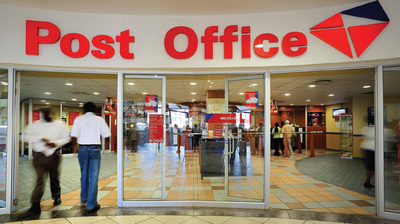
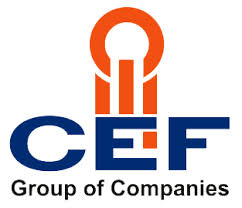

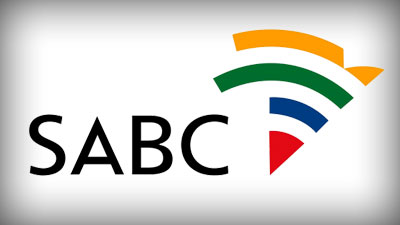
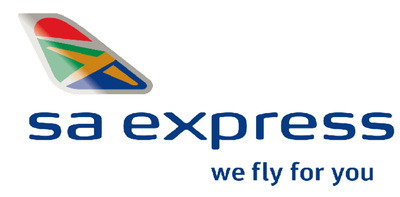
 RSS Feed
RSS Feed